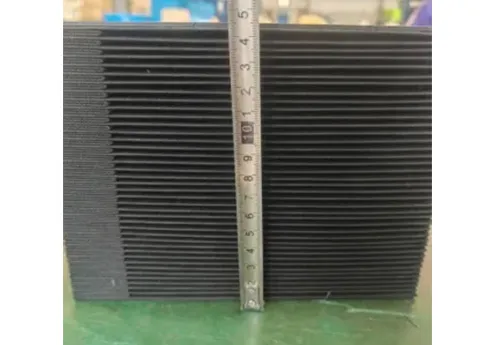drag chain cable carrier
Understanding Drag Chain Cable Carriers Essential Components for Modern Machinery
In various industries, the smooth operation of machinery is crucial for productivity and efficiency. One of the lesser-known yet vital components that ensure effective machine movement and performance is the drag chain cable carrier. These cable carriers, also known as energy chains, serve a specific function that greatly enhances the longevity and reliability of moving parts in machinery and equipment.
What is a Drag Chain Cable Carrier?
A drag chain cable carrier is a protective mechanism used to contain and guide flexible cables, hoses, and other energy-conducting components in machinery. They are designed to move with the motion of the machinery, providing a safe and organized path for cables and hoses to travel without tangling or suffering damage. Essentially, they protect these components from wear and tear caused by constant motion.
Drag chains can be found in a range of applications, from CNC machines and industrial robots to conveyor systems and automated assembly lines. Their structure, typically made of high-strength plastic or metal, allows them to endure significant stress and friction, proving their effectiveness in high-demand environments.
The Importance of Drag Chain Cable Carriers
The importance of drag chain cable carriers cannot be overstated. Here are a few key benefits they provide
1. Protection Drag chain cable carriers shield cables and hoses from external factors such as dust, debris, and physical damage. This protection prolongs the life of critical components, reducing the need for frequent replacements and lowering maintenance costs.
2. Organization They help organize multiple cables and hoses, preventing tangling and confusion. With an organized setup, it is easier to identify and troubleshoot issues in the wiring or fluid systems of machinery.
3. Flexibility and Movement These carriers are designed to accommodate various types of movements, including linear and rotational. They can handle different bend radii, ensuring that cables can move freely without stress.
drag chain cable carrier

4. Noise Reduction By containing cables and hoses, drag chain cable carriers minimize friction and vibration, which can lead to noise in machinery operations. This is particularly beneficial in environments where noise reduction is a priority, such as in workplaces adhering to strict health and safety standards.
5. Ease of Installation and Maintenance Many drag chain systems are modular, making them easy to install and configure according to specific machinery requirements. Additionally, they allow for quick access to cables for maintenance and replacement, streamlining operational efficiency.
Types of Drag Chain Cable Carriers
There are various types of drag chain cable carriers available, each designed for specific applications. Some common types include
- Open Design These carriers provide easy access to cables and hoses, suitable for applications where frequent maintenance is necessary. - Closed Design Offering better protection against external elements, closed designs are ideal for harsh environments where dust and moisture are concerns.
- Heavy-Duty Chains Designed for high load capacities and extreme conditions, heavy-duty drag chains are used in manufacturing processes involving heavy machinery.
- Custom Solutions Many manufacturers offer bespoke solutions tailored to specific machinery, ensuring that the drag chain meets unique performance requirements.
Conclusion
In conclusion, drag chain cable carriers are an integral part of modern machinery, contributing to enhanced performance, safety, and reliability. Whether in industrial settings, robotics, or heavy machinery, the use of these protective devices cannot be overlooked. As industries continue to evolve and require more advanced technology, drag chain cable carriers will play a pivotal role in ensuring seamless operations and maintaining the integrity of critical components. Investing in high-quality drag chains tailored to specific applications is not just a good practice; it's essential for future-proofing machinery and enhancing productivity.








